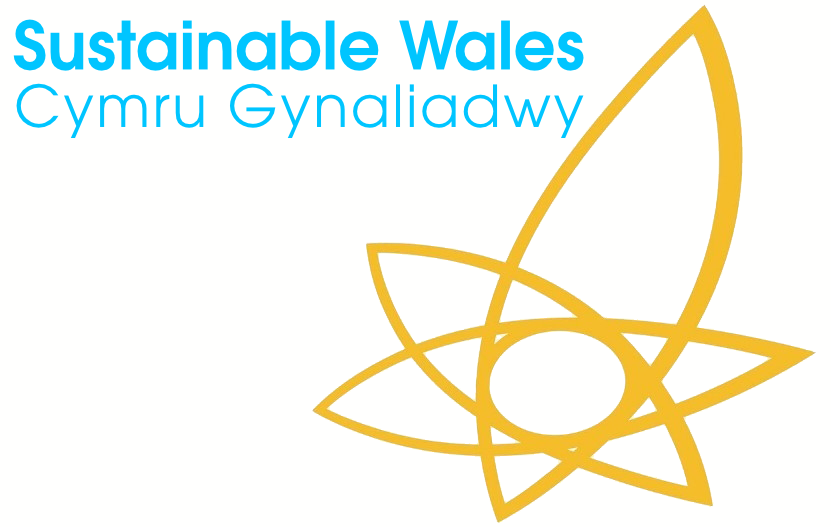A visit to the University of South Wales (USW) to see how it is addressing the challenges of sustainability has helped two sixth-form students win £250 prizes in a Global Citizenship competition.
The contest formed part of a partnership between USW, Sustainable Wales, and the Welsh Joint Education Committee (WJEC), which earlier this year saw 120 year 12 students from Porthcawl Comprehensive School visit USW’s Treforest Campus. During the visit, which included a campus tour, the students had lectures on sustainable fashion, climate change solutions, transforming urban mobility, and mapping and monitoring biodiversity change.
After the visit, the A-level Welsh Baccalaureate students were invited to submit entries for the best Global Citizenship Project under key themes including population, land use, sustainable resources, energy, climate change, and cultural and political influences, which would be used as competition entries. They were asked to identify a problem, suggest solutions, and come up with ideas of actions that need to be taken.
Following the judging of the competition entries by Dr Stewart Eyres, Deputy Dean of Faculty of Computing, Engineering & Science at USW; Robert Minhinnick, award-winning writer and long-standing adviser to Sustainable Wales; and Professor Merryn Hutchings, Emeritus Professor at the Institute for Policy Studies in Education, Seren Cook and Emma Jones were announced as the winners.
Full coverage on our Global Citizenship Competition page
Text of the announcement given by Robert Minhinnick at the award ceremony:
The charity, Sustainable Wales/ Cymru Gynaliadwy would like to thank everyone who entered this Baccalaureate competition.
We congratulate the two chosen as winners.
Seren Cook – Is winner of the Alwyn Jones Award for Global Citizenship.
Emma Jones – is winner of the Steve Harris Award for Sustainable Development.
Alwyn and Steve were both board members of this charity.
We can imagine both winners – Seren and Emma - going on to turn their enthusiasm for their subjects – ‘period poverty’ and ‘consumerism’ into voluntary, maybe political action.
And also imagine both winners using their strongly-held beliefs in the making of art.
I’ll say something now about Alwyn Jones and Steve Harris as people. By the way, Alwyn was 80 when he died, Steve Harris only 56.
Both Alwyn and Steve worked for the University of Glamorgan. Alwyn was originally an accountant who gained fantastic experience of life by working in Fiji in the Pacific.
He appreciated the more sustainable, even spiritual form of life he encountered there.
Steve strongly believed in ‘citizen science’, taking personal action for our beliefs. You might see his influence on the ‘Lift the River’ campaign against pollution in the River Wye.
Steve also believed in the power of the written word and musical phrase. He was a musician and songwriter.
Alwyn Jones remained very much opposed to nuclear power, and was thus a different type of environmentalist from Steve.
Steve Harris felt that nuclear was the answer to climate change and global warming.
Steve Harris was also supportive of genetic engineering of food crops. In fact, Steve blamed the green movement for allowing world hunger and climate irregularity by its too rigorous opposition to nuclear power and genetic engineering.
For Steve Harris, genetics could supply possibly the only answer to world hunger.
Alwyn foresaw nuclear waste extending thousands of years into the future and felt nuclear power a permanent cause of pollution.
Maybe Steve felt the green movement hidebound and conservative, afraid of challenges. Alwyn would not have agreed.
Both Alwyn and Steve were interested and involved in the arts. It was vital to both men. It completed their vision of ‘sustainability’ via the use of the human imagination to describe what it is to be ‘human’.
Music, literature, dance, painting, sculpture, cookery, mime, songwriting, drama, etc were all art forms in which people described what it is to be human. For Steve and Alwyn, a world without art was inconceivable.
Steve Harris was a songwriter who left behind a body of work, only made known to us at his death.
Both Alwyn & Steve depended on curiosity, which is the foundation of both science and creative art.
They asked questions, and possessed a journalistic flair, which I urge all the Baccalaureate candidates never to abandon, but to foster always and keep developing.
I enjoyed reading all of the Baccalaureate projects, and give all the candidates this advice.
Apply your research to yourself and where you live, be it Porthcawl, Corneli, Pyle, Bridgend, Margam.
You are unique.
You matter.
What you think matters.
You’re not clones.
Whether you go into science or art or both, never forget that fact.
Steve Harris used to write his songs and essays in a café at Trecco Bay, maybe the Hi Tide.
I was closer in age to Steve than to Alwyn, and I still mourn Steve’s early death.
Here’s a quote from a poem I published about Steven Harris in the Hi Tide at Trecco, Porthcawl:
Steve would sit with coffee
Under the mullions of a marine sky,






